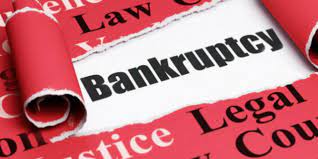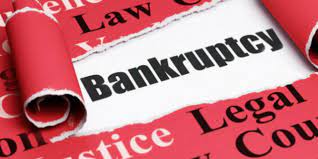Acts of Bankruptcy – s40(1)(g) Bankruptcy Notices
How does a Bankruptcy Notices under the Bankruptcy Act 1966 work?
6 min read
Mark Smith : Updated on January 11, 2022

How does a Bankruptcy Notices under the Bankruptcy Act 1966 work?
(1) A debtor commits an act of bankruptcy in each of the following cases: ….
(d) if:
(i) execution has been issued against him or her under process of a court and any of his or her property has, in consequence, either been sold by the sheriff or held by the sheriff for 21 days; or
(ii) execution has been issued against him or her under process of a court and has been returned unsatisfied;
(daa) if the debtor presents a debtor‘s petition under this Act;
(da) if the debtor presents to the Official Receiver a declaration under section 54A;
(e) if, at a meeting of any of his or her creditors:
(i) he or she consents to present a debtor‘s petition under this Act and does not, within 7 days from the date on which he or she so consented, present the petition; or
(ii) he or she consents to sign an authority under section 188 and does not, within 7 days from the date on which he or she so consented, sign such an authority and inform the chair of the meeting, in writing, of the name of the person in whose favour the authority has been signed;
(f) if, at a meeting of any of his or her creditors, he or she admits that he or she is in insolvent circumstances and, having been requested by a resolution of the creditors to bring his or her affairs under the provisions of this Act, he or she does not, within 7 days from the date of the meeting, either:
(i) present a debtor‘s petition; or
(ii) sign an authority under section 188 and inform the chair of the meeting, in writing, of the name of the person in whose favour the authority has been signed;
Source: http://classic.austlii.edu.au/au/legis/cth/consol_act/ba1966142/s40.html
What is a Bankruptcy Notices under the Bankruptcy Act 1966? The Act defines Bankruptcy Notices as follows:
Do you have a problem with a Bankruptcy Notices? Have you been served a Bankruptcy Notices? Does someone owe you money and you’d like to issue a Bankruptcy Notices?
Any questions about Bankruptcy Notices? Live chat with us in the bottom right corner or call us on 1300-327123 till late, or alternatively complete the form below and we’ll reply to you promptly.
Watch our video tutorial, live chat with us in the bottom right corner or call us on 1300-327123 till late.
We offer a free first appointment to anyone who is in financial trouble and can assist and advise on any Bankruptcy Notices or a related matter. To book your free appointment – click here.

To learn more about Mark Smith, his training and expertise – click here to go to his profile page
Follow Mark on Twitter: https://twitter.com/mrmarkjsmith
hi mark smith, here welcome back to business asset protection, today we’re having a further look at some other sections. now there are endless acts of bankruptcy maybe not endless but we’re looking at a number of them so we’re looking at today from about section 40(1)(d)-(h) of the bankruptcy act.
so sit back and enjoy. all right so let’s have a look at the section 40(1) of the bankruptcy act. so a debtor commits
as act of bankruptcy in each of the following so we’ve looked at a b c we’re well
we’re now in d and we’re going to look through to h we’ve already had a look at g and we’ll touch
on that briefly when we get there so you commit an act of bankruptcy on every one of these occasions
all right so let’s quickly go to section d
you commit an act of bankruptcy if that the sheriff turns up and tries to sell your stuff and it’s either sold but it hasn’t paid the debt so that’s that’s a section 40(1)(d). there’s a pardon me so there’s been a writ for possession of your goods and they’re either sold or held by the by the sheriff for more than 21 days so this has come back unsatisfied that’s that is the key they come back unsatisfied poor sheriffs this is fairly self-explanatory DAA. if the debtor’s prison well if you present your own debtors petition you are bankrupt that’s that’s an act of well sorry that’s an act of bankruptcy now even if it’s not accepted it is itself an act of bankruptcy d.a if the if the debtor presents a declaration so there is a way you can present this declaration and we can have a look at that in section 54A if you have a meeting of your creditors and it’s decided that even just having a meeting itself would be a well we’ll have a look so this is section 40 in brackets one in brackets e if at a meeting of his or her creditors he or she commits a commits to presented as a petition so if you come out publicly and say well it’s going to happen within seven days even if you don’t well that’s that’s going to be an act of bankruptcy or he or she can sense to sign an authority under section 188 and we’ll have a look at that a little bit later within seven days and if there’s minutes kept and that sort of thing and there’s a meeting chair and it’s all in writing well and you know there’s a vote of your creditors well so be it, that’s an act of bankruptcy. F now we’re not going to have a look at g but we are going to have a look at f if at a meeting of his or her creditors so this these are sort of sounding like you’re talking formally about being insolvent they are themselves an act of bankruptcy so we’ve had a meeting of his or her creditors he or she admits that he or she is in is in insolvent circumstances and having it doesn’t have to be the entire the entirety of your creditors we can have a look more closely at some of this case law or you’ve got any questions give us a call but if if you’ve been in one of these positions where you’ve had a meeting with your creditors or someone’s been in that position with you where they’ve had a meeting of their creditors and you’ve you know said that you will pass a resolution well these are all factors that point very very heavily as acts of of acts of bankruptcy so g. g now we have had a look at this if a creditor obtains a final judgment so we don’t get a judgment against ralph paligaru for $106,551 we serve him and he doesn’t pay he had six months that’s that is an act of bankruptcy there and then there can be some exceptions for instance where a notice was served in australia within a fixed time and the debtor does not does not comply with the requirements so the bankruptcy number said ralph you’ve got to pay $106,551 within 6 months so that’s actually very generous it’s now as it today today’s the 19th of april 2021. the average creditor gets 21 days and after 21 days you have you have committed an act of bankruptcy. so so where the dead or does not comply with the requirements of the notice or satisfy the court that he or she has a counter claim so yes well it’s not only that it’s a counter claim set off or cross demand equal to or exceeding the amount of the judgment debt as the case may be THAT that he or she could not could not could not have set up in the action or proceedings in which the judgment was obtained so they had a counter claim and but they could not they couldn’t set up this counter claim so this is a little bit different and look finally finally we’ll have a look at now h. if he or she gives his or her creditors notice that he’s about to suspend payments of his or her debts so we’ve got this situation with mr paligaru and where he’s he’s given not necessarily every one of his creditors but possibly i can think of i can think of a couple who’s given notice and says well i’m not paying because i’m going bankrupt well there you go yeah you’ve committed an act of bankruptcy just then and there there are a few more of these, and we might have a look at that in a separate video this is obviously a technical space so what i do encourage people to do depending on their circumstances we’ve got health checks we’ve got questionnaires you can chat with us on our chat tools in the bottom right corner here of dcpartners.solutions we’d love you to be in contact with us you’ve got someone that owes you money or you owe them money we can help you on either side the debtors side or the creditor side we can give you advice on these pre-insolvency issues so it’s it’s really important what you say what you well you can see for yourself you attend a meeting and you pass resolutions you tell our creditors various things then we can talk through with you what some of your options are ,
so we’ll have a look at some of the remaining acts of bankruptcy there are more there are even more and there’s plenty of ways there’s only 50 ways to leave your lover but i don’t know if there’s 50 ways that you can go bankrupt but we’re going to keep looking and thank you very much for joining in. got any questions, chat with us bottom corner here www.dcpartners.solutions use the chat tool or give us a ring 1300-327123 or you can email me mark@dcpartners.solutions. thanks very much bye

How does a Bankruptcy Notices under the Bankruptcy Act 1966 work?

How does a Bankruptcy Notices under the Bankruptcy Act 1966 work?

How does a Bankruptcy Notices under the Bankruptcy Act 1966 work?

How does a Bankruptcy Notices under the Bankruptcy Act 1966 work?

How does a Bankruptcy Notices under the Bankruptcy Act 1966 work?

How does aBankruptcy Notices under the Bankruptcy Act 1966 work?
BANKRUPTCY ACT 1966 – SECT 188 Debtor may authorise trustee or solicitor to be controlling trustee

2 min read
About Direct Fibreglass Pools is the business name of Richard Andrew Mirosevich. Mirosevich is a frequent litigant. More information on...

What questions should Steve's insolvency trustee ask Steve when Steve appears for a deposition in Austin Texas on Friday 16 August 2024?